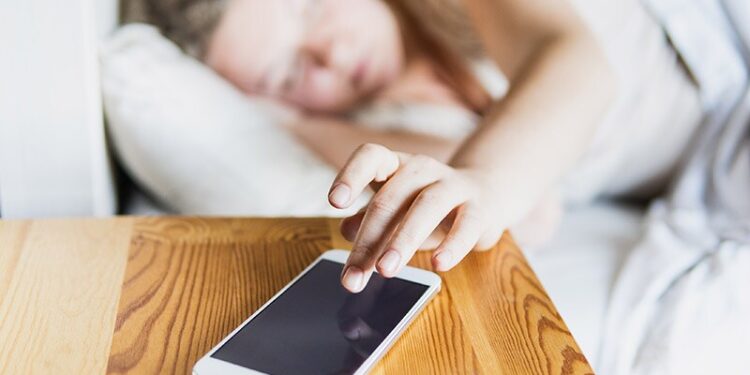TOPLINE:
An analysis of more than 21,000 people worldwide suggested that 56% used the snooze function on their alarm regularly, interrupting sleep patterns researchers said are important for rapid eye movement (REM) sleep. Women had significantly longer snooze durations than men (11.5 vs 10.2 minutes), with heavy users averaging 20.2 minutes of daily snoozing, investigators found.
METHODOLOGY:
- Researchers included data of over 3 million sleep sessions of over 21,000 users of a sleep-monitoring smartphone application (54% men) from July 2022 to December 2022.
- Participants resided primarily in the United States, followed by the United Kingdom, Japan, Australia, and Germany.
- Users could opt for traditional snooze features in the smartphone application. Sleep sessions lasting 4 hours or longer were included in the analysis.
- Participants were heavy, moderate, or light users if > 80%, 40%-60%, and < 20% of their sleep sessions ended with a snooze alarm, respectively.
TAKEAWAY:
- In all, 56% of sleep sessions ended with the use of a snooze alarm. Women more frequently used the snooze alarm (mean snooze alarm sessions, 2.5; 95% CI, 2.5-2.6; mean daily snoozing time, 11.5 minutes) than men (mean snooze alarm sessions, 2.3; 95% CI, 2.3-2.4; mean daily snoozing time, 10.2 minutes).
- The use of snooze alarms was significantly higher on weekdays than on weekends (P < .001). Heavy, moderate, and light users pressed the snooze button 4, 1.7, and 1.2 times and snoozed for an average of 20.2, 6.3, and 3.0 minutes, respectively.
- Participants in Sweden used snooze alarms the most (mean snooze alarm sessions, 2.7), and those in Japan and Australia used it the least (mean snooze alarm sessions, 2.2).
- Long sleep sessions (> 9 hours) were more likely to end with a snooze alarm than those of the recommended duration (7-9 hours) or short sleep sessions (< 7 hours). Participants who went to bed earlier than usual used a snooze alarm less often, whereas those who went to bed later than usual used it more often.
IN PRACTICE:
“The hours just before waking are rich in rapid eye movement sleep. Hitting the snooze alarm will interrupt these critical stages of sleep and typically only offer you light sleep in between snooze alarms. The best approach for optimizing your sleep and next day performance is to set your alarm for the latest possible time, then commit to getting out of bed when your first alarm goes off,” lead investigator Rebecca Robbins, PhD, Division of Sleep Medicine, Brigham and Women’s Hospital, Harvard Medical School, Boston, said in a press release.
SOURCE:
This study was published online on May 19 in Scientific Reports.
LIMITATIONS:
This study’s sleep duration likely overestimated actual sleep due to unmeasured sleep latency and awakenings. Data reflected time in bed, not true sleep time. Snooze alarm data were objective, but users may have been awake during snooze periods, potentially inflating snooze estimates. Data on age and self-reported feelings on waking up were not available. Additionally, wake time variability and self-reported sleep quality were not assessed.
DISCLOSURES:
Funding information was not provided for this study. Several authors reported having financial relationships with various sources. One author was employed by the application manufacturer. Details are provided in the original article.
This article was created using several editorial tools, including AI, as part of the process. Human editors reviewed this content before publication.
Source link : https://www.medscape.com/viewarticle/women-use-rem-disruptive-snooze-alarm-more-often-than-men-2025a1000d1e?src=rss
Author :
Publish date : 2025-05-23 11:03:00
Copyright for syndicated content belongs to the linked Source.














